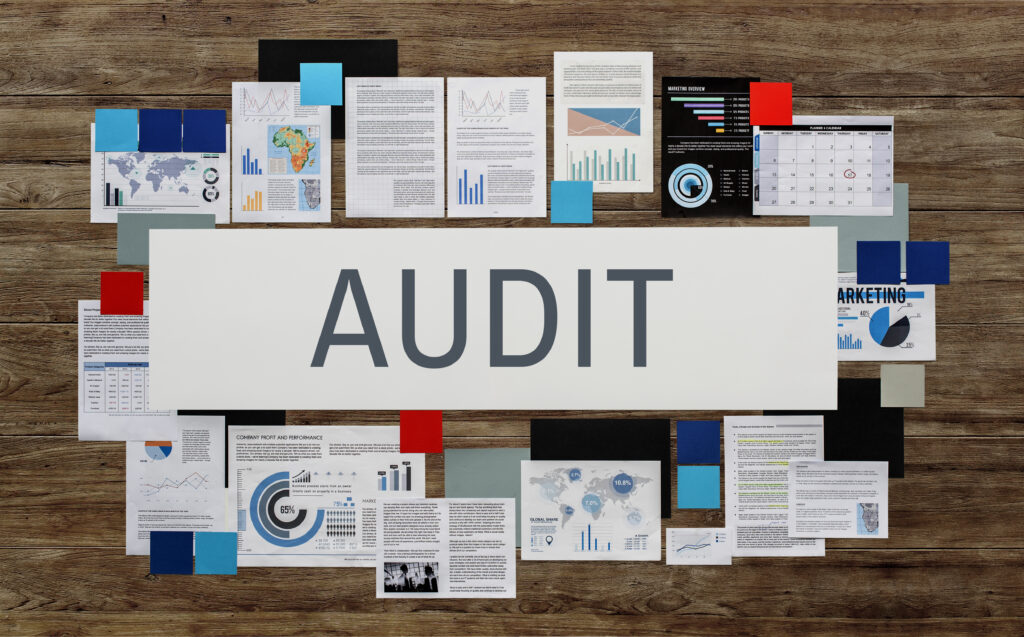Section 44AB of the Income Tax Act, 1961, mandates income tax audit for certain taxpayers to ensure accurate reporting and compliance. Let’s delve into the key aspects of Income Tax Audit under Section 44AB:
1. Introduction to Section 44AB:
Understand the purpose and applicability of Section 44AB. Learn which taxpayers are required to undergo an audit and the different categories of business covered under this section.
What is Section 44AB?
In a nutshell, Section 44AB is like the watchdog of the Income Tax Act. It monitors specific companies and experts to make sure they follow the law and provide truthful financial reports. You might need to go through a tax audit if your company fits into any of the categories listed in this section. Yes, it’s similar to a financial examination for your company!
Who Needs to Worry About Section 44AB?
Now, let’s see if you’re in the radar of Section 44AB. If your business has a turnover exceeding a certain threshold, or if you’re a professional with income beyond the specified limit, congratulations – you’ve entered the realm of tax audit! But wait, there’s more! Certain businesses, irrespective of their turnover, must get ready for an audit too. So, better be prepared!
Categories Covered Under Section 44AB
It’s time to meet the VIPs (Very Important Professionals) who come under the tax audit radar. First up, if you’re running a business, and its turnover crosses the threshold of ₹1 crore, you’re in. Next, professionals like doctors, lawyers, architects, and others who earn more than ₹50 lakhs, you too are invited. And let’s not forget those businesses who enjoy the sweet benefits of presumptive taxation – you are under the watchful eyes of Section 44AB as well!
What Happens during the Tax Audit?
Once you’re in the tax audit zone, your CA will take over. They’ll dive deep into your books of accounts, financial statements, and transaction records. But don’t worry, they’re not here to nitpick. Their mission is to give your finances a thorough checkup and catch any discrepancies that might have crept in. It’s all about keeping things transparent and above-board.
2. Criteria for Tax Audit:
Explore the financial thresholds that trigger the need for a tax audit. We’ll discuss the turnover and income criteria for businesses and professions to determine if they fall under the ambit of Section 44AB.
The Turnover Tango
The first criterion for tax audit revolves around your business’s turnover. If your business grooves past the ₹1 crore mark, you’ve got the tax audit spotlight on you. So, keep an eye on those sales and make sure your books are dancing to the right tune.
The Income Indicators
For all you professionals out there – doctors, lawyers, consultants, and more – your income is the main act! If your annual earnings pirouette beyond ₹50 lakhs, you’re on the tax audit stage. But hey, it’s not all bad; think of it as a chance to shine and show off your financial prowess!
Why Does the Taxman Want an Encore?
Now, you might wonder, why is the taxman so keen on this tax audit spectacle? Well, it’s all about ensuring transparency and accuracy. The government wants to ensure that taxpayers are playing fair, reporting their income truthfully, and not taking any creative liberties with their numbers. It’s like a financial reality show, where honesty is the key to winning!
3. Due Date and Filing Procedure:
Get insights into the due date which is 30th September for filing tax audit reports and the step-by-step procedure for submitting the audit report to the Income Tax Department.
Racing Towards the Due Date
You don’t want to miss the deadline, which is comparable to the finish line of a race. By September 30th, the tax audit report is due. Prepare for the race against time by marking your calendars, setting your alarms, and so on!
The Extension
Missed the deadline? Don’t worry! You can apply for an extension to submit your tax audit report. The Central Board of Direct Taxes (CBDT) may give you up to a one-month extension. But be sure to act quickly and avoid delays!
The Online Filing Dash
Gone are the days of standing in long queues with paper files! You ought to accept the digital transformation of the tax industry. Visit the e-filing portal of the Income Tax Department, register or log in, and then upload your tax audit report in the format provided. Zoom! It’s that simple!
The Verification Hurdle
Not so fast! Before you hit the finish line, there’s one last hurdle – the verification. The tax audit report must be digitally signed after it has been posted. For the last approval stamp, you can use your Electronic Verification Code (EVC) or Digital Signature Certificate (DSC).
4. Types of Tax Audit Reports:
Learn about the different types of tax audit reports prescribed by the Income Tax Act, such as Form 3CA, Form 3CB, Form 3CD, and their significance.
Form 3CA
If your business already goes through the drill of a statutory audit under other laws, Form 3CA is your sidekick. It’s like an extension of your existing audit, focusing on specific tax-related information. So, if you’ve already got auditors buzzing around your financials, add Form 3CA to the mix, and you’re good to go!
Form 3CB
Now, if your business is not required to undergo any statutory audit, Form 3CB takes centre stage. It’s the standalone report that covers your entire tax audit process. Think of it as the all-in-one package that showcases your financial prowess and compliance. No need to look elsewhere; Form 3CB has got you covered!
Form 3CD
Form 3CD – the grand repository of all things tax audit! It’s like an encyclopedia that covers every intricate detail of your financial performance. From accounting policies to tax adjustments, from related party transactions to depreciation calculations – you name it, Form 3CD has it all! Think of it as your financial memoir, where everything is laid bare for the tax authorities to see.

5. Documentation and Record Keeping:
Understand the essential documents and records that need to be maintained during the tax audit process to ensure smooth compliance.
The Paper Trail Magic
The power of paperwork! Having a well-maintained paper trail is like having a magic wand when it concerns tax audits. Record all of your financial transactions, bills, receipts, and invoices. Creating a treasure map that leads to financial clarity is similar to that.
Organize, Organize, Organize!
You know the saying – tidy space, tidy mind! The same applies to your financial records. Organised them in a systematic manner, either physically or digitally. Create folders for each financial year, segregate expenses, and keep everything in its designated place. You’ll thank yourself when the tax audit adventure begins!
The Digital Dance
In this digital age, why not dance with technology? Embrace digital record-keeping to make your life easier. To safely save and manage your financial data, use cloud-based tools, applications, or accounting software. You may view your information at any time and from any location with a few clicks; it’s like having a financial genie at your disposal!
Financial Statements
In the tax audit arena, your financial statements are the backbone of your performance. Ensure they are accurate, up-to-date, and align with your records. They’re like the script of your financial play, and you want to make sure they tell the right story!
The Art of Reconciliation
Reconciliation – the art of making sure everything matches up like puzzle pieces. Regularly reconcile your bank statements, invoices, and expenses to ensure they sync with your financial records. It’s like solving a financial puzzle, and you’re the master detective!
Audit Trail
Think of your financial records as a treasure hunt for accuracy. Maintain a clear audit trail that shows the origin and flow of every transaction. It’s like leaving breadcrumbs for the tax auditor, guiding them through your financial journey.
6. Penalties for Non-Compliance:
Discover the potential consequences of non-compliance with Section 44AB, including penalties and interest levied by the tax authorities.
The Late Filing Fiasco
Imagine missing the deadline for filing a tax audit. The penalty and the tax collector are not pleased with delay. A punishment of ₹1,500 to ₹10,000 may be imposed, depending on how late you are. You’d better avoid that financial wake-up call!
The Missing Records Mystery
I assume you are aware of the importance of maintaining records. That’s what the tax officials also believe! You will encounter problems if your financial records are inaccurate. The penalty is ₹25,000 or 0.5 percent of your total turnover, whichever is lower. Oh no! It is a sting you do not wish to experience.
The False Deductions Dilemma
We all love deductions; they’re like little financial treats. But claiming false deductions can lead to a financial nightmare. The penalty for wrongfully claiming deductions is equal to the amount you overstated. So, stick to legitimate deductions – no tricks, just treats!
7. Tax Planning and Tax Audit:
Explore how businesses can strategically plan their taxes to optimize benefits and reduce tax liabilities during the audit process.
Tax Planning – Your Financial GPS
Imagine tax planning as your financial GPS – it helps you chart the best route to your financial goals. With smart tax planning, you can legally reduce your tax liabilities, optimize deductions, and enjoy sweet tax benefits. It’s like a secret treasure map leading you to financial success!
The Prep Work – Organized Finances
Tax planning sets the stage for a smooth tax audit. Organize your finances, keep accurate records, and ensure compliance with tax laws. When the tax auditor arrives, you’ll be ready to put on a flawless performance!
Finding Tax Deductions – The Treasure Hunt
One of the key benefits of tax planning is uncovering tax deductions! There are many hidden treasures to be found in the deductions for business costs and investments. You’ll do everything you can to reduce your taxes using tax preparation!
The Tax-Smart Investment Play
Tax planning also guides your investment choices. From tax-saving investments to tax-efficient strategies, you’ll be making smart moves with your money. It’s like having a financial coach who knows all the right plays!
8. Common Tax Audit Findings and Solutions:
Identify the common issues and findings encountered during tax audits and learn about the best practices to rectify them.
The Mismatched Math Mysteries
Numbers – the heart of any audit! One common finding is mismatched math – numbers that just don’t add up. But fret not! The solution is simple: double-check your calculations, use reliable accounting software, and keep your math game strong.
The Deduction Dilemma
Tax deductions are like puzzle pieces, and sometimes they don’t fit quite right. The taxman might find discrepancies between claimed deductions and supporting documents. The solution? Keep thorough records, organize your paperwork, and ensure your deductions have a solid foundation.
The Ghostly Ghost Income
Beware the ghost income – money that appears out of thin air! The taxman is quick to spot discrepancies between reported income and actual deposits. Solution? Make sure every rupee earned has a clear trail and is duly reported. No ghostly surprises allowed!
Safeguarding Your Supporting Documents
Supporting documents are your audit armour. Keep invoices, receipts, and transaction records safe and organized. If the taxman comes knocking, you’ll be armed and ready with evidence that stands tall.
Avoiding Hasty Transactions
Rushed financial transactions can lead to errors. Take your time, especially when recording large transactions. Accuracy is your best friend when it comes to avoiding audit hiccups.
Visit Our Website For More!


